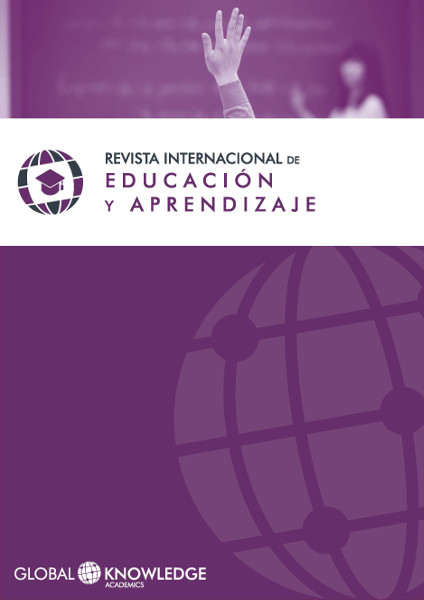The Program a Computer Student: Conditions for Digital Inclusion
DOI:
https://doi.org/10.37467/gka-revedu.v4.193Keywords:
PROUCA, Digital Inclusion, Technology in EducationAbstract
The discourse of digital inclusion utilized widely refers the availability of access to computers connected to internet. Beside appears the discourse of duality (in / out and included / excluded) which mandates that excluded digital are those who do not have access to new digital technologies.
Downloads
Global Statistics ℹ️
|
404
Views
|
481
Downloads
|
|
885
Total
|
|
References
Bardin, L. (2009). Análise de Conteúdo . Lisboa, Portugal: Edições 70.
Bonilla, M. H. S. e Pretto, N., (2008). Formação de Professores: as tic estruturando dinâmicas curriculares horizontais . Disponível em: http://www.acauanfm.ufba.br/twiki/pub/UFBAIrece/ArtigoEAD/ead_isp_pretto_boni_09_final_cfotos_pq.pdf. Acesso em: 20 mar. 2008.
Brasil, (2010). Programa Um Computador por Aluno: Formação Brasil Planejamento das Ações. Brasília, Brasil: SEED/MEC. Brasília, Câmara dos Deputados. Um Computador Por Aluno: A Experiência Brasileira, Coordenação de publicações, série avaliação de políticas públicas, 2008 .
Cazeloto, E. (2008). Inclusão digital: uma visão crítica . São Paulo, Brasil: Ed. SENAC.
Damásio, J. M. (2007). Tecnologia e educação: as tecnologias da informação e comunicação e o processo educativo. Portugal: Veja.
Finquelievich, S. (2003). ICTs and Poverty Alleviation in Latin America and the Caribbean, ICA – IDRC.
Guerreiro, E. P. (2006). Cidade digital: infoinclusão social e tecnologia em rede . São Paulo, Brasil: Editora SENAC.
Lavinas, L. e Veiga, A. (2013). Desafios do modelo brasileiro de inclusão digital pela escola . Cadernos de Pesquisa, 43 (149), 542-569. DOI: https://doi.org/10.1590/S0100-15742013000200009
Lèvy, P. (1999). Cibercultura . São Paulo, Brasil: Editora 34.
Mendes, M. e Almeida, M. E. B. (2011). Utilização do laptop educacional em sala de aula. In: O computador portátil na escola: mudanças e desafios nos processos de ensino e aprendizagem (p. 112). São Paulo, Brasil: Avercamp.
Mística, Comunidad Virtual. (2003). Comunidad virtual trabajando la internet con visión social. En: Otro lado de la brecha : perspectivas latinoamericanas y del Caribe ante la CMSI . Caracas, Venezuela: RedISTIC.
Moreira, S. R. (2010a). Análise de reações de professores face à introdução do computador na educação: o caso do Projeto Uca – Um Computador por Aluno no Colégio Estadual Dom Alano Marie Du'Noday (To) . Dissertação de Mestrado não-publicada, Universidade de Brasília, Brasília, Brasil.
Moreira, M. A. (2011b). Los efectos del modelo 1:1 en el cambio educativo en las escuelas. Evidencias y desafíos para las políticas iberoamericanas . Revista Iberoamericana de Educación, 56 , 49-74. Disponivel em: http://www.rieoei.org/rie56a02.pdf DOI: https://doi.org/10.35362/rie560510
Padilha, M. A. S. e Santana, F. B. F. (2013). Sociedade digital e inclusão social: condições para uma educação digital . Mimeo, Recife, Brasil.
Piorino, G. I. P. (2012). Formação do professor e o desenvolvimento de competências pedagógicodigitais: experiência em escola pública que participa do Projeto UCA . Tese de Doutorado. Pontifícia Universidade católica de São Paulo. Disponível em: http://www.sapientia.pucsp.br//tde_busca/arquivo.php?codArquivo=14731
Penuel, W. (2006). Implementation and Effects Of One-to-One Computing Initiatives: A Research Synthesis . Journal of Research on Technology in Education, 38 (3), 329-348. DOI: https://doi.org/10.1080/15391523.2006.10782463
Silveira, S. A. da. (2001). Exclusão Digital: a miséria na era da informação . São Paulo, Brasil: Fundação Perseu Abramo.
Sorj, B. e Guedes, L. E. (2005). Exclusão digital: problemas conceituais, evidências empíricas e políticas públicas . Novos estudos – CEBRAP. São Paulo, 72 . Disponível em: http://www.scielo.br . Acesso em 26 de jan. de 2010. DOI: https://doi.org/10.1590/S0101-33002005000200006
Souza, B. F. (2013). O Programa um computador por aluno e as mudanças na organização escolar: o caso de uma instituição municipal do Recife . Recife, Brasil: O autor.
Spagnolo, C. (2013). Formação continuada de professores e projeto prouca: reflexões acerca do prazer em ensinar apoiado por tecnologias digitais . Porto Alegre, Brasil: 2013.
Tondeur, J., Van Keer, H., Van Braak, J., & Valcke, M. (2008). ICT integration in the classroom: challenging the potential of a school policy . Computers & Education, 51 , pp. 212- 223. DOI: https://doi.org/10.1016/j.compedu.2007.05.003
Warschauer, M. (2006). Tecnologia e inclusão social: a exclusão social em debate . São Paulo, Brasil: Editora SENAC.
Downloads
Published
How to Cite
Issue
Section
License
Those authors who publish in this journal accept the following terms:
-
Authors retain copyright.
-
Authors transfer to the journal the right of first publication. The journal also owns the publishing rights.
-
All published contents are governed by an Attribution-NoDerivatives 4.0 International License.
Access the informative version and legal text of the license. By virtue of this, third parties are allowed to use what is published as long as they mention the authorship of the work and the first publication in this journal. If you transform the material, you may not distribute the modified work. -
Authors may make other independent and additional contractual arrangements for non-exclusive distribution of the version of the article published in this journal (e.g., inclusion in an institutional repository or publication in a book) as long as they clearly indicate that the work was first published in this journal.
- Authors are allowed and recommended to publish their work on the Internet (for example on institutional and personal websites), following the publication of, and referencing the journal, as this could lead to constructive exchanges and a more extensive and quick circulation of published works (see The Effect of Open Access).













